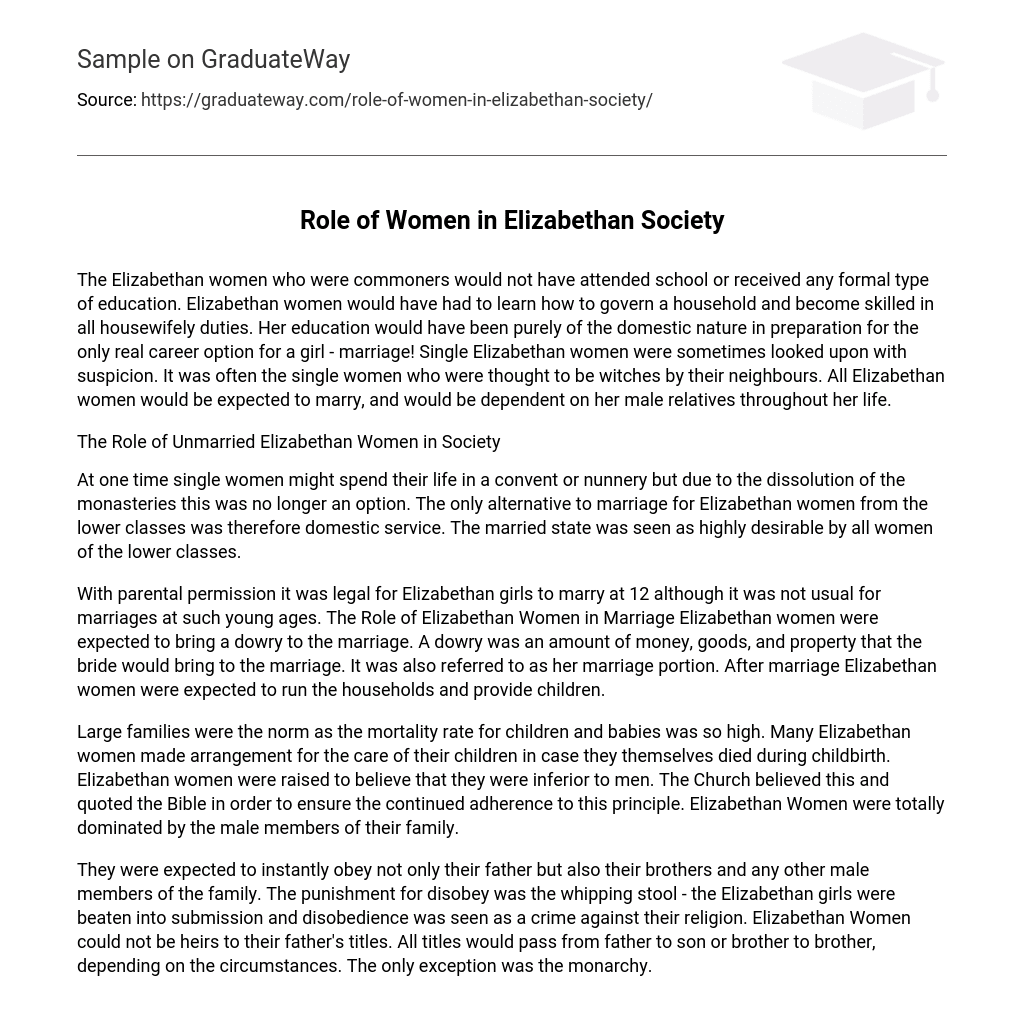The education of Elizabethan women, particularly those of commoner status, consisted solely of learning domestic skills necessary for running a household and fulfilling traditional wifely duties. Formal education or schooling was not available to them. Marriage was the main career option for girls, and single women were deemed suspicious, often being accused of witchcraft by their neighbors. In order to secure financial and societal stability, all Elizabethan women were expected to marry and rely on their male relatives for support throughout their lives.
The Role of Unmarried Elizabethan Women in Society
Restrictions were faced by single women in the Elizabethan era. In previous times, they had the option to live in convents or nunneries, but this became unattainable after the monasteries were dissolved. Consequently, lower-class Elizabethan women had no choice except to become domestic servants. Marriage was highly desired by all lower-class women during this time.
Although Elizabethan girls were allowed to marry at the age of 12 with parental consent, such marriages were rare. Women in this period had to offer a dowry, which included money, belongings, and land. This dowry, also known as the marriage portion, was provided by the bride herself. Additionally, after getting married, these women were responsible for managing households and giving birth to children.
During the Elizabethan era, families often had many children due to high mortality rates among infants and young ones. To anticipate their potential death during childbirth, women commonly made arrangements for their children’s care. Elizabethan women were consistently taught that they held a lower status compared to men, which was further enforced by biblical quotations used by the Church. As a result, male relatives of Elizabethan women had total authority over them.
In Elizabethan society, women were required to promptly obey their father, brothers, and all other male members of the family. Disobedience was met with punishment, namely the whipping stool, as it was believed that disobedience went against their religious beliefs. Additionally, Elizabethan women were not allowed to inherit their father’s titles; these titles would instead pass to a male relative, typically a son or brother. The only exception to this rule was the monarchy.





